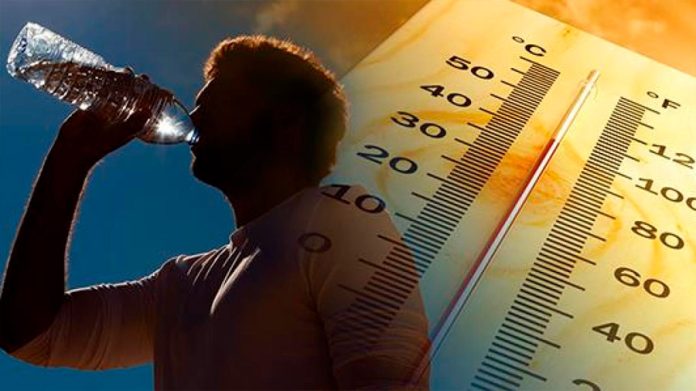Various international media outlets are raising alarms about a heat wave occurring in the Caribbean, where the heat index could reach up to 50 degrees Celsius. This poses a significant risk to those working or engaging in outdoor activities.
In response, the minister of Nature and Elderly Affairs of Aruba, Ursell Arends, has issued a press release especially directed at the elderly, warning them about the dangers of heat waves. “As Minister of Nature, I recognize that climate change is a reality,” stated Minister Arends, noting that the United Nations has confirmed that 2023 has broken all global records for high temperatures, marking the 10th consecutive year of temperature increases.
Although the government cannot change global temperatures, every effort must be made to mitigate the impact on the most vulnerable. For this reason, Minister Arends called an emergency meeting with various agencies that in one way or another serve the elderly.
The goal of the meeting was to collaborate with all relevant agencies to develop an action and cooperation plan. “All those involved in caring for the elderly must work together to assess the risks and prepare a plan to mitigate them.”
Research on the internet has found data indicating that between 1999 and 2019, more than 150,000 deaths worldwide were related to heat waves each year, according to a recent study published in PLOS Medicine by Yuming Guo from Monash University, Australia, and his team.
In this study, researchers used data from the Multi-Country Multi-City Collaborative Research Network (MCC), which included daily mortality and temperature records from 750 locations in 43 countries. During the warm seasons from 1990 to 2019, excess deaths related to heat waves accounted for 153,078 deaths per year, totaling 236 deaths per ten billion inhabitants, or 1% of global deaths.
Asia and Europe are the continents with the highest number of deaths per million inhabitants, with the highest mortality rates from heat waves recorded in arid climate regions.
Heat waves, or periods of extremely high temperatures lasting several days, can cause thermal stress on the human body, leading to serious health risks, particularly for the elderly. It is for this reason that we advise our visitors to always carry and wear sunscreen, drink plenty of water and stay in the shade whenever possible.
















